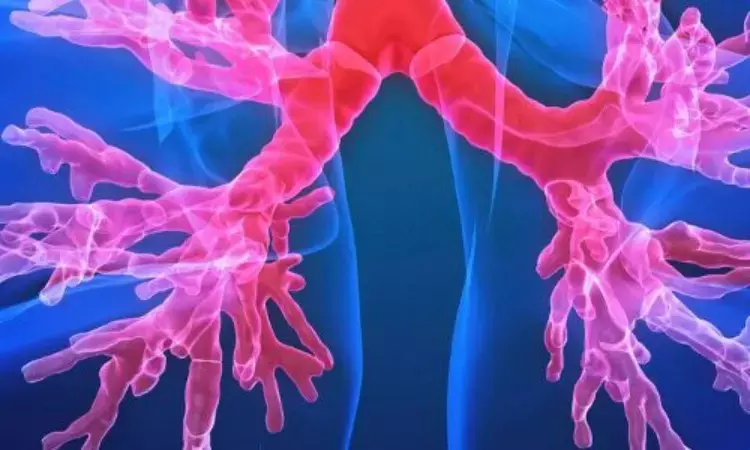- Home
- Medical news & Guidelines
- Anesthesiology
- Cardiology and CTVS
- Critical Care
- Dentistry
- Dermatology
- Diabetes and Endocrinology
- ENT
- Gastroenterology
- Medicine
- Nephrology
- Neurology
- Obstretics-Gynaecology
- Oncology
- Ophthalmology
- Orthopaedics
- Pediatrics-Neonatology
- Psychiatry
- Pulmonology
- Radiology
- Surgery
- Urology
- Laboratory Medicine
- Diet
- Nursing
- Paramedical
- Physiotherapy
- Health news
- Fact Check
- Bone Health Fact Check
- Brain Health Fact Check
- Cancer Related Fact Check
- Child Care Fact Check
- Dental and oral health fact check
- Diabetes and metabolic health fact check
- Diet and Nutrition Fact Check
- Eye and ENT Care Fact Check
- Fitness fact check
- Gut health fact check
- Heart health fact check
- Kidney health fact check
- Medical education fact check
- Men's health fact check
- Respiratory fact check
- Skin and hair care fact check
- Vaccine and Immunization fact check
- Women's health fact check
- AYUSH
- State News
- Andaman and Nicobar Islands
- Andhra Pradesh
- Arunachal Pradesh
- Assam
- Bihar
- Chandigarh
- Chattisgarh
- Dadra and Nagar Haveli
- Daman and Diu
- Delhi
- Goa
- Gujarat
- Haryana
- Himachal Pradesh
- Jammu & Kashmir
- Jharkhand
- Karnataka
- Kerala
- Ladakh
- Lakshadweep
- Madhya Pradesh
- Maharashtra
- Manipur
- Meghalaya
- Mizoram
- Nagaland
- Odisha
- Puducherry
- Punjab
- Rajasthan
- Sikkim
- Tamil Nadu
- Telangana
- Tripura
- Uttar Pradesh
- Uttrakhand
- West Bengal
- Medical Education
- Industry
Obesity Paradox Observed in Bronchiectasis: Underweight Patients Face Higher Mortality Risk, Study Suggests

Taiwan: A large-scale retrospective cohort study has shed new light on the relationship between body mass index (BMI) and health outcomes in individuals with non-cystic fibrosis (non-CF) bronchiectasis. The research, conducted by Wan-Hsuan Hsu and colleagues from the Department of Internal Medicine at Chi Mei Medical Center, Tainan, Taiwan, was published in a recent issue of BMJ Open Respiratory Research.
The analysis, which spanned ten years and included over 14,000 patients, revealed a striking trend: individuals with low BMI had a significantly increased risk of all-cause mortality. Specifically, underweight patients faced an 83% higher risk of death compared to those with a normal BMI (Hazard Ratio [HR]: 1.83). In contrast, being overweight or obese appeared to be linked with a reduced risk of mortality (HR: 0.77 and HR: 0.79, respectively).
To explore this association, the researchers utilized data from TriNetX, a global health research network, to identify patients diagnosed with non-CF bronchiectasis between 2012 and 2022. Participants were divided into four groups based on their BMI: underweight, normal, overweight, and obese. Propensity score matching was applied to balance baseline characteristics among the groups, ensuring robust comparisons.
In addition to all-cause mortality, the study assessed the occurrence of several adverse health events. The findings indicate the following:
- Underweight individuals had a higher risk of developing pneumonia.
- They were more likely to contract tuberculosis (TB).
- They experienced more frequent acute exacerbations of bronchiectasis.
- The incidence of acute respiratory failure was higher among underweight patients.
- Underweight individuals had a greater need for critical care services.
- They were more likely to require mechanical ventilation.
- In contrast, overweight and obese patients showed lower rates of these complications.
This pattern supports the concept of the “obesity paradox,” where higher BMI appears to offer a protective effect in certain chronic diseases, including non-CF bronchiectasis. Although obesity is generally considered a risk factor for various health conditions, these findings suggest a more nuanced relationship when it comes to pulmonary health.
The authors emphasize that while being underweight is clearly associated with poorer outcomes, it remains uncertain whether interventions aimed at increasing BMI through nutrition or lifestyle changes could improve prognosis in this patient population. They advocate for future prospective and interventional studies to confirm these observations and to explore whether targeted weight management could become part of bronchiectasis care strategies.
The authors emphasized the significance of body mass index (BMI) as an important factor in the clinical management of non-cystic fibrosis bronchiectasis. They noted that being underweight may warrant closer monitoring and additional support while being moderately overweight or obese could be linked to improved survival and reduced complications.
They concluded that these findings have the potential to shape future clinical guidelines and guide research efforts aimed at improving care for individuals with this chronic respiratory condition.
Reference:
Wan-Hsuan Hsu, Bo-Wen Shiau, Yu-Feng Wei, Chih-Cheng Lai, Ching-Yi Chen - Impact of body mass index on outcomes of non-cystic fibrosis bronchiectasis: BMJ Open Respiratory Research 2025;12:e002488.
Dr Kamal Kant Kohli-MBBS, DTCD- a chest specialist with more than 30 years of practice and a flair for writing clinical articles, Dr Kamal Kant Kohli joined Medical Dialogues as a Chief Editor of Medical News. Besides writing articles, as an editor, he proofreads and verifies all the medical content published on Medical Dialogues including those coming from journals, studies,medical conferences,guidelines etc. Email: drkohli@medicaldialogues.in. Contact no. 011-43720751


